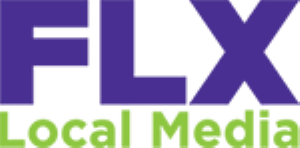SYRACUSE, N.Y. — Bernard J. Paprocki, director of the U.S. Small Business Administration (SBA) Syracuse District Office, says the volume of calls and web traffic from small companies seeking help during the coronavirus crisis is unprecedented.
Paprocki this week spoke with CNYBJ about the SBA’s economic injury disaster loan program that provides low-interest working-capital loans direct from the federal government to help small businesses meet their financial obligations during the coronavirus disaster.
Small businesses can apply for up to $2 million in loans, though they will need to provide collateral for any loans exceeding $25,000. The loans can be used to pay fixed debts, payroll, accounts payable, and other bills that can’t be paid because of the disaster’s impact. The interest rate is 3.75 percent for small businesses without credit available elsewhere; businesses with credit available elsewhere are not eligible. The interest rate for eligible nonprofits is 2.75 percent. The first payment is being deferred up to 12 months, says Paprocki, who oversees a 34-county region for the SBA’s Syracuse District.
(Sponsored)

Revitalizing a historic brand in New York State- JRECK Subs
Founded in Carthage, New York, in 1967, by 5 schoolteachers who started selling subs out of a converted school bus! JRECK Subs has built its reputation on quality, community, and

Written Contracts for Freelance Workers Now Required
Originally planned for May, the requirements of New York State’s Freelance Isn’t Free Act (“FIFA”) became effective August 28, 2024. The law has flown under the radar for many employers. The
Applicants may apply online, receive additional disaster loan assistance information and download applications at https://disasterloan.sba.gov/ela
Businesses can also call SBA’s Customer Service Center at (800) 659-2955 or email: disastercustomerservice@sba.gov for more information on SBA disaster assistance.
Paprocki offered this advice to small businesses about these loans:
- Apply even if you don’t think you need it. “Even if you think you don’t need it, apply for it. You don’t have to take it if you get approved,” he says.
- Start the application as soon as you can: “If you’re just thinking about doing it, start the application process. The sooner you do it the better. We only see the demand for this program increasing,” Paprocki says.
- Apply for more money than you think you need: “Consider applying for more than you think you might need. You don’t know what’s coming and how long this will last. You can always end up taking less money than you were approved for,” he says.
- Make sure your applications is complete and accurate: “You have to really pay attention to the application to make sure you do it right or it will just prolong the process. You’ll go to the back of the queue is my understanding,” Paprocki notes.
Paprocki says the SBA’s best estimate is that applications will be approved or denied in eight to 21 days. In normal times, it’s about five days.
 If you can’t get a loan there’s other help available, he reminds small firms. Paprocki says the SBA and its partners in the Small Business Development Centers, like the one at OCC, are here to help firms that don’t qualify for the loans by offering other assistance, like business guidance and advice. “Call an SBDC to see if you can set up an appointment to get your business back on track,” he says.
If you can’t get a loan there’s other help available, he reminds small firms. Paprocki says the SBA and its partners in the Small Business Development Centers, like the one at OCC, are here to help firms that don’t qualify for the loans by offering other assistance, like business guidance and advice. “Call an SBDC to see if you can set up an appointment to get your business back on track,” he says.
Finally, Paprocki says, “There’s more help on the way. There’s more to come. This is just the beginning.”
Specifically, the $2 trillion coronavirus stimulus package — which was approved by the U.S. Senate on Wednesday night and the House of Representatives on Friday afternoon — offers small businesses more relief. The legislation includes a $350 billion forgivable loan program that seeks to help small firms avoid laying off employees and a 50 percent refundable payroll tax credit on worker wages to provide further incentive to keep staff on the payroll.




